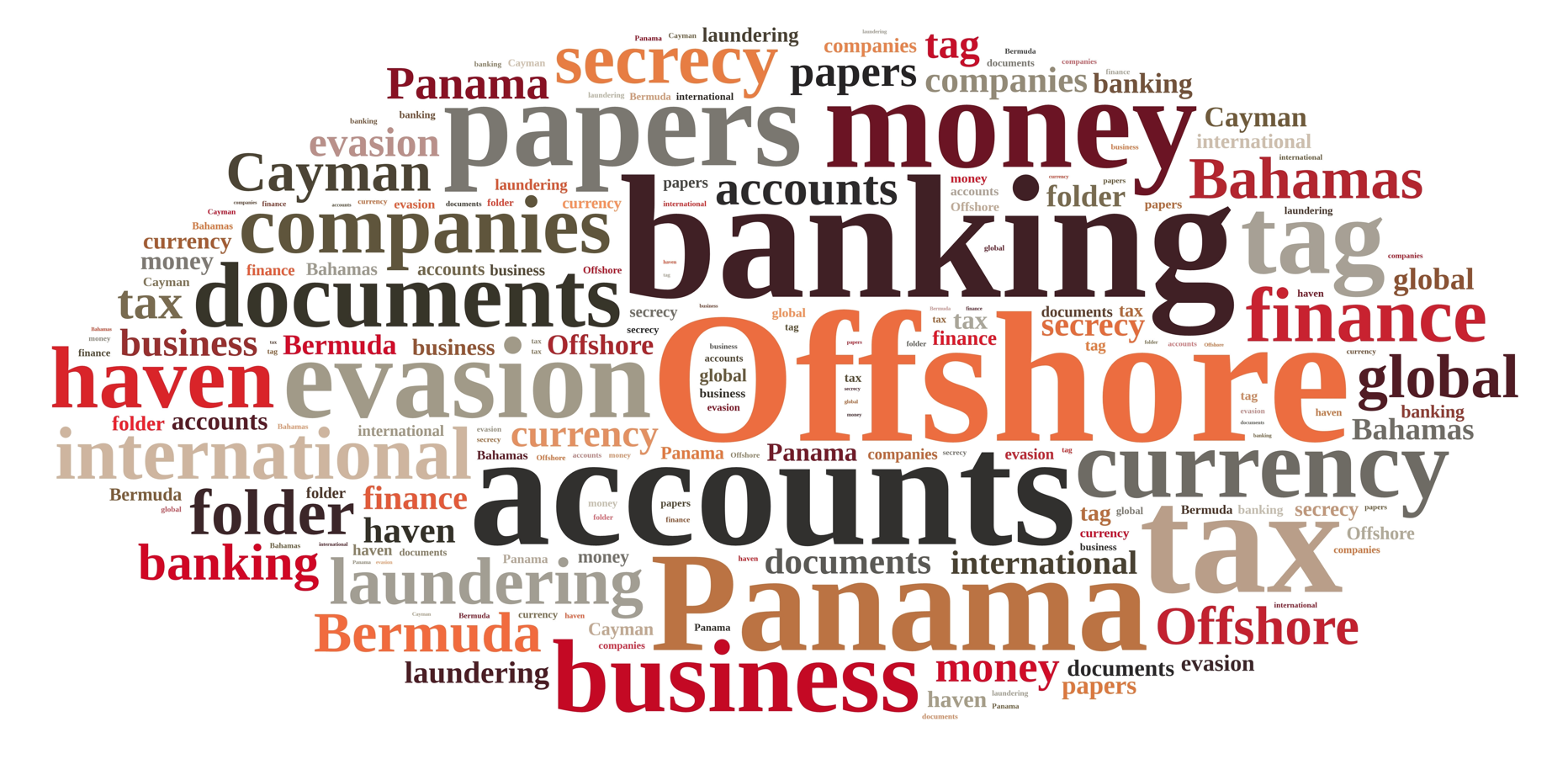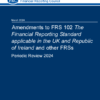
by John McCarthy Consulting Ltd. | Apr 10, 2022 | Blog, News
Here we look at a potential money laundering scenario that can arise in practice. You have been filing income tax returns for your client for many years. Just last week your client has volunteered a confession that she has been keeping money offshore in a Panamanian bank account, the existence of which has never been declared on her tax returns.
Normally tax evasion is a reportable money laundering offence. Is there something different that may apply here?
Section 46 (1) of the 2010 Act states that disclosure of information which is subject to legal privilege is not required. Known as the ‘privilege circumstances exemption’, ‘relevant professional advisers’ (defined as accountant, auditor or tax adviser who is a member of a designated accountancy body or of the Irish Institute of Taxation) may, in the course of their work, receive information and documents that are subject to legal privilege, e.g. when engaged by a legal professional to carry out work on behalf of a client or when approached directly by a client to deal with previously undeclared taxes. If Section 46 applies in these circumstances, no money laundering report needs to be filed.
Given the complexity of these matters – as well as the need for a considered and consistent approach to all decisions, supported by adequate documentation – it is recommended that they are always discussed with the MLRO and legal/professional advice is obtained in writing.
The reporting exemption is unlikely to apply if the existence of the Panamanian bank account came to light in the course of your work and was not initially volunteered by the client or if the client subsequently refuses to go ahead and file/pay the relevant taxes, having had your professional advice. then Section 46 will fall away and a money laundering suspicious transaction report (STR) will need to be filed by the MLRO.
More guidance on this topic is available in Part 7.4 of the recent CCAB-I Guidance called Technical Release 01-2019 (Updated March 2022).
Accountants should also consult the Code of Ethics (ACCA, CPA Ireland, Chartered Accountants Ireland) of their respective professional bodies for the implications of the lack of integrity of their client and consider the implications of withdrawing from the assignment. Withdrawal from the engagement and the professional relationship is not a substitute for taking other actions that might be needed to achieve the professional accountant’s objectives. Again obtaining professional and legal advice is a good idea.’
Are your AML Policies Controls & Procedures up to date?
We have just released our latest Anti-Money Laundering Policies Controls & Procedures Manual (March 2022) – View the Table of Contents click here.
We have also just released an updated AML webinar (March 2022) available here, which accompanies the AML Manual. It explains the current legal AML reporting position for accountancy firms.
To ensure your letters of engagement and similar templates are up to date visit our site here where immediate downloads are available in Word format. A bulk discount is available for orders of five or more items if bought together.
For our latest Audit Quality Control Manual (October 2021) (implementing the latest Irish Audit & Accounting Supervisory Authority standards including ISQC1 on audit quality control) click here. View the Table of Contents here.

by John McCarthy Consulting Ltd. | Apr 10, 2022 | Blog, News
At a recent meeting of the CRO Forum (an umbrella group for the accountancy, legal and company formation profession liaising with CRO officials) it was revealed that there are 30,000 companies out of a population of 250,000 companies that had not, as at February 2022, filed their beneficial owner details with the Register of Beneficial Owners.
Staff at the RBO are hoping that some of this shortfall can be accounted for by companies which will be struck off for not filing their annual returns on time.
The April 2021 Criminal Justice (Money Laundering and Terrorist Financing) Acts 2010 to 2021 made it a requirement for designated persons to report two types of offence to the RBO. These were originally covered in our blog in May 2021 here. These offences are:
- ‘Discrepancy’ and
- ‘Non-compliance’
Both offences are defined in the AML law.
According to the meeting minutes, in the month of January 2022, the RBO received over 1,000 ‘non-compliance’ and ‘discrepancy’ reports, which would suggest a full-year figure of over 12,000.
Are your AML Policies Controls & Procedures up to date?
We have just released our latest Anti-Money Laundering Policies Controls & Procedures Manual (March 2022) – View the Table of Contents click here.
We have also just released an updated AML webinar (March 2022) available here, which accompanies the AML Manual. It explains the current legal AML reporting position for accountancy firms.
To ensure your letters of engagement and similar templates are up to date visit our site here where immediate downloads are available in Word format. A bulk discount is available for orders of five or more items if bought together.
For our latest Audit Quality Control Manual (October 2021) (implementing the latest Irish Audit & Accounting Supervisory Authority standards including ISQC1 on audit quality control) click here. View the Table of Contents here.

by John McCarthy Consulting Ltd. | Apr 8, 2022 | Blog, News
In recent blogs we looked at some scenarios of money laundering in practical day to day business life.
Today we look at another example based on the latest Consultative Committee of Accountancy Bodies (CCAB) AML Guidance released in early March 2022.
The scenario is: Your client’s overseas subsidiary is one of three key suppliers of goods to a particular market in Europe. The subsidiary has recently significantly increased its prices and margins and its principal competitors have done the same.
There has been press speculation that the suppliers acted in concert, but publicly they have cited increased costs of production as driving the increase. Whilst this explains part of the reason for the increase, it is not the only reason for the increase in margins.
On reviewing the accounting records, you see significant payments for consultancy services and seek an explanation. Apparently, they relate to an assessment of the impact of the price increase on the market as well as some compensation for any losses the competitors suffered on their business outside of Europe.
Some of the increased profits have flowed back to the Irish parent company. There is not a criminal cartel offence under local law but there is under Irish law.
Where do one’s AML reporting duties lie in this situation?
- If you suspect a price fixing cartel – Report the matter as a suspicious money laundering transaction and document your decision process along with any associated professional advice received.
- If you do not suspect criminal activity – do not report but document your decision carefully along with any associated professional advice received.
The CCAB-I guidance elsewhere goes on to clarify that money laundering offences include, in certain circumstances, conduct occurring overseas which would constitute an offence if it had occurred in Ireland, even if it is not an offence in that overseas jurisdiction.
Please note that few potential money laundering reporting scenarios are clear cut. Legal and professional advice may be necessary to fully understand your reporting obligations.
Are your AML Policies Controls & Procedures up to date?
We have just released our latest Anti-Money Laundering Policies Controls & Procedures Manual (March 2022) – View the Table of Contents click here.
We have also just released an updated AML webinar (March 2022) available here, which accompanies the AML Manual. It explains the current legal AML reporting position for accountancy firms.
To ensure your letters of engagement and similar templates are up to date visit our site here where immediate downloads are available in Word format. A bulk discount is available for orders of five or more items if bought together.
For our latest Audit Quality Control Manual (October 2021) (implementing the latest Irish Audit & Accounting Supervisory Authority standards including ISQC1 on audit quality control) click here. View the Table of Contents here.

by John McCarthy Consulting Ltd. | Apr 4, 2022 | Blog, News
In recent blogs we looked at some examples of money laundering in practical day to day business life.
Here is another case study based on an example from the latest Consultative Committee of Accountancy Bodies (CCAB) AML Guidance released in early March 2022.
Your client plans to expand its operations into a new overseas area of operation. The client has engaged a consultancy firm to oversee the implementation, although it is not clear what the firm’s role is.
Payments made to the consultancy firm are large in comparison to the services provided and some expenses claimed are for significant sums to ‘meet government officials’ expenses’.
The country is one where corruption and facilitation payments are known to be widespread. You ask the FD about the matter and he thought that such payments were acceptable in the country in question.
What are one’s AML reporting duties in this situation?
- If you suspect that bribes have been paid – Report the matter as a suspicious money laundering transaction.
- If you do not suspect illegal payments – do not report.
The CCAB-I guidance goes on to clarify that money laundering offences include, in certain circumstances, conduct occurring overseas which would constitute an offence if it had occurred in Ireland.
Please note that few potential money laundering reporting scenarios are clear cut and legal and professional advice may be necessary to fully understand your reporting obligations.
Are your AML Policies Controls & Procedures up to date?
There are no excuses as we have just released our latest Anti-Money Laundering Policies Controls & Procedures Manual (March 2022) – View the Table of Contents click here.
We have also just released an updated AML webinar (March 2022) available here, which accompanies the AML Manual. It explains the current legal AML reporting position for accountancy firms.
To ensure your letters of engagement and similar templates are up to date visit our site here where immediate downloads are available in Word format. A bulk discount is available for orders of five or more items if bought together.
For our latest Audit Quality Control Manual (October 2021) (implementing the latest Irish Audit & Accounting Supervisory Authority standards including ISQC1 on audit quality control) click here. View the Table of Contents here.

by John McCarthy Consulting Ltd. | Mar 21, 2022 | Blog, News
Following the recent CCAB-I Joint Statement to the Profession about sanctions, accountants must carry out checks on their clients’ potential exposure to sanctions, as part of AML processes and procedures. An important part of this process will be to check whether the accountant holds or controls any funds/economic resources for people or institutions affected by the sanctions.
The CCAB-I is the umbrella group for the accountancy bodies in Ireland and its latest pronouncement (only 5 pages long) emphasises that that these measures are directly relevant to both members in business and practice and the public sector as well as the charity and not for profit sectors. The Guidance contains links to the relevant sanctions lists and websites where further guidance is available.
Many of the sanctions will affect PEPs (Politically Exposed Persons) and people closely connected to them (including family members and business associates). Accountants need to have appropriate training and AML procedures for staff so that prior to approval of the business relationship they obtain senior management sign-off and then take sufficient measures to establish the source of wealth and funds; and perform enhanced ongoing monitoring (called Enhanced Due Diligence of EDD) of the relationship.
If funds connected to sanctioned institutions or individuals are held (e.g. in a clients’ money account), accountants are legally obliged to freeze such funds and any funds owned/controlled by such persons and must refrain from dealing with these assets or making them available (directly or indirectly) to persons/institutions on the sanctions list.
There is also an increased potential risk of money laundering among every client on an accountants’ client base, as individuals and businesses (directly or indirectly connected to such sanctions) try to evade the sanctions regimes and perhaps disperse funds/assets to other persons/institutions not currently on the sanction lists.
Another important matter in the Guidance is the potential impact the sanctions may have on the operation of exclusion clauses (if any) in professional indemnity arrangements. CCAB-I recommends that accountants check the current position with their providers.
The Joint Statement is available here.
The latest EU Sanctions list as of 15 March 202 is available here. Because this is a fast evolving situation, readers are advised to check the websites of your appropriate professional body and the European Union for further sanctions updates.
We have an up to date Anti-Money Laundering Procedures Manual (September 2021) – View the Table of Contents click here.
To ensure your letters of engagement and similar templates are up to date visit our site here where immediate downloads are available in Word format. A bulk discount is available for orders of five or more items if bought together.
For our latest Audit Quality Control Manual (October 2021) (implementing the latest Irish Audit & Accounting Supervisory Authority standards including ISQC1 on audit quality control) click here. View the Table of Contents here.

by John McCarthy Consulting Ltd. | Mar 15, 2022 | Blog, News
In several recent blogs we looked at some examples of money laundering in practical day to day business life.
Here is another one that is based on an example from the latest Consultative Committee of Accountancy Bodies (CCAB) AML Guidance released on 4 March 2022.
Your client has paid a dividend based on draft accounts. Subsequent adjustments reduce distributable reserves to the extent that the dividend is now illegal. Do I need to report this as a money laundering offence?
The answer is that whether it is money laundering or not will depend on the circumstances and the intentions of the Directors.
- Report as a money laundering offence – If there is suspicion of fraud.
- Do not report as a money laundering offence – If there is no such suspicion. It may be a simple error and will need rectified without delay.
The payment of an illegal dividend is not a criminal offence under the Companies Act.
Commentary
A company can only pay a dividend if it has sufficient ‘distributable profits’ (as defined) available for distribution. Sections 124 and 125 of the Companies Act, 2014 are the principal sections that deal with declaring dividends and the Directors ought to prepare calculations in advance, based on the company law requirements, to ensure they are calculated from profits that are available for distribution, as defined in Section 117. If a dividend is declared unlawfully the directors are potentially liable to repay it to the Company.
Please note that potential money laundering reporting scenarios are not usually clear cut and legal and professional advice may be necessary to fully understand your obligations. There is a significant technical document available on the ICAEW website, Tech 02/17BL, which, although based on the UK Companies Act, 2006, would be persuasive under Irish company law, as GAAP in both Ireland and the UK is the same (at least for now) and both countries have the same accounting frameworks with similar underlying legal principles.
We have an up to date Anti-Money Laundering Procedures Manual (September 2021) – View the Table of Contents click here.
To ensure your letters of engagement and similar templates are up to date visit our site here where immediate downloads are available in Word format. A bulk discount is available for orders of five or more items if bought together.
For our latest Audit Quality Control Manual (October 2021) (implementing the latest Irish Audit & Accounting Supervisory Authority standards including ISQC1 on audit quality control) click here. View the Table of Contents here.











